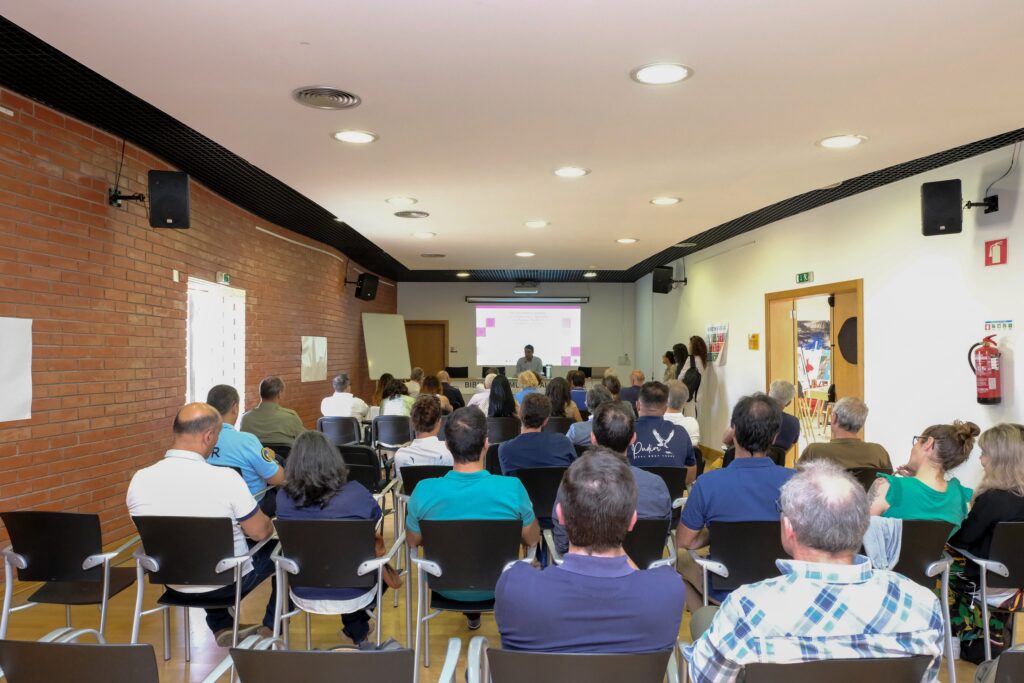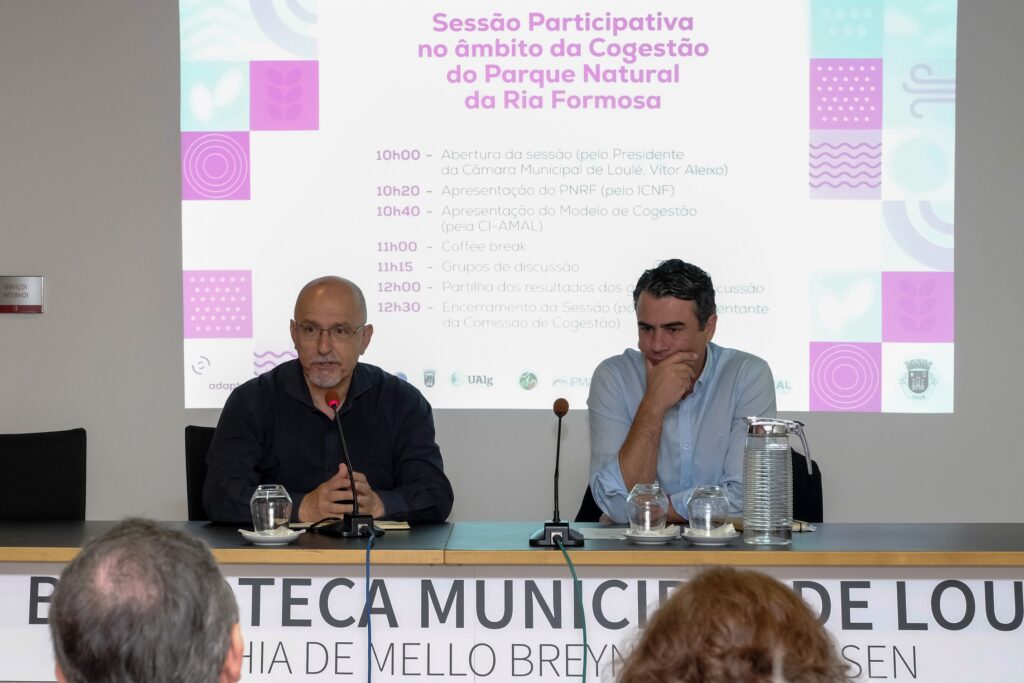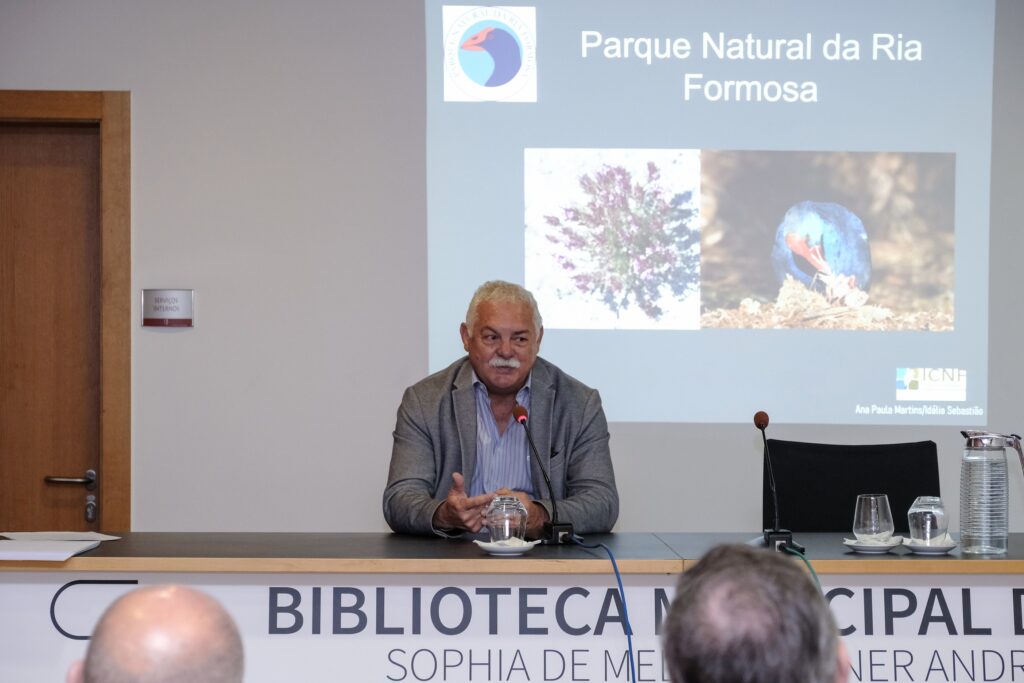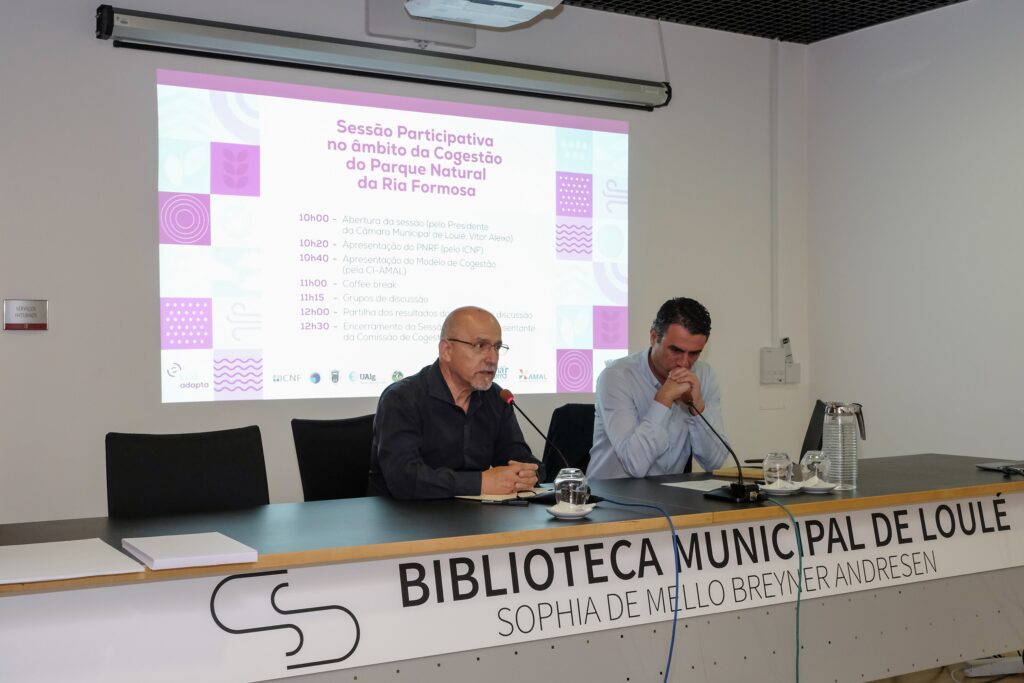Entities and citizens gave their contribution in the participatory session that took place in Loulé, on the 9th of May, within the scope of the co-management of the Ria Formosa Natural Park. These sessions take place in the municipalities that are part of this model (alongside Loulé, also Faro, Olhão, Tavira and Vila Real de Santo António).
It is a shared process of valuing one of the most important wetlands in Europe, gathering opinions and ideas that may constitute opportunities, establishing synergies to safeguard this natural heritage, one of the “hot spots of the Mediterranean Basin”.
Castelão Rodrigues, regional director of the Institute for the Conservation of Nature and Forests (ICNF), came to the session held at the Municipal Library of Loulé to explain a bit of the process that led to this co-management model, and spoke of its three essential aspects: the promotion valuing the territory, raising the awareness of local populations and improving communication.
“Few people know about this Park, largely because of the administration, especially the ICNF, which has not been able to make the community participate more”, he noted.
Therefore, he defended, it is time to change the paradigm and the objective now is to create a shared dynamic of valuing the protected area, based on its sustainability in the political, social, economic, ecological, territorial and cultural dimensions and to promote a better performance in your safeguard.
This model thus aims to imprint a proximity management dynamic, in which different entities – and also citizens – place at the service of the protected area the best they have to offer within the framework of their competences and attributions, putting into practice a management participatory, collaborative and articulated in each area.
The Algarve Intermunicipal Community (AMAL) is the entity that manages this co-management, having signed, in 2021, a protocol for this purpose with the Environmental Fund and the ICNF. There are two structures involved: the co-management commission, chaired by the mayor of Faro, and the strategic council, chaired by the mayor of Olhão
Despite the reduced area that the municipality of Loulé has, in territorial and administrative terms, in the Ria Formosa Natural Park, – only 5% -, mayor Vítor Aleixo underlined the importance of this area as “the greatest environmental asset in our region”.
“It would be incomprehensible if we neglected all the knowledge that, over the years, we have acquired regarding the strategic importance of these natural assets that we have in our territory”, he stressed.
In terms of areas of ecological interest in the municipality with protection status, Ria Formosa is not unique. At the moment, the creation of the Foz do Almargem and Trafal Local Nature Reserve is in public consultation, which is expected to be completed later this year.
Now the Municipality wants to start the process of classifying Nave do Barão, in the parish of Salir, “a geological occurrence, with great wealth in terms of biodiversity”. It is also the intention that, by the end of the present municipal mandate, the classification as a UNESCO Geopark be completed for the entire area of the interior of the central Algarve, which includes the municipalities of Loulé, Albufeira and Silves.
“Particularly because, by 2030, there is an international responsibility for 30% of the earth's sphere to be under protection status and Loulé wants to make its contribution to this goal”, stresses the City Council.
During the session, the Loulé mayor expressed concern about the consequences that the environmental problem in the neighboring Doñana National Park could have on the Ria Formosa. The head of the ICNF, Castelão Rodrigues, said that this impact is already being felt, for example by the communities of flamingos that are now found in the Ria Formosa.
In the second part of the session, groups were formed from which some ideas and suggestions emerged which, after due consideration, could be included in the co-management plan for this Natural Park.
The first participatory session took place last week in Faro, this being the second. These participatory sessions are part of the 1st phase of the co-management model, corresponding to its launch, relegating its consolidation to the 2nd phase.






















Comments